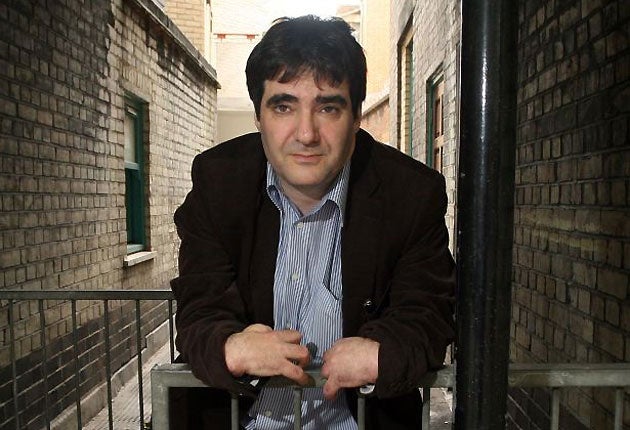50 years on, a formal apology over Thalidomide

Your support helps us to tell the story
From reproductive rights to climate change to Big Tech, The Independent is on the ground when the story is developing. Whether it's investigating the financials of Elon Musk's pro-Trump PAC or producing our latest documentary, 'The A Word', which shines a light on the American women fighting for reproductive rights, we know how important it is to parse out the facts from the messaging.
At such a critical moment in US history, we need reporters on the ground. Your donation allows us to keep sending journalists to speak to both sides of the story.
The Independent is trusted by Americans across the entire political spectrum. And unlike many other quality news outlets, we choose not to lock Americans out of our reporting and analysis with paywalls. We believe quality journalism should be available to everyone, paid for by those who can afford it.
Your support makes all the difference.The Government expressed its "sincere regret and deep sympathy" today to the victims of the Thalidomide scandal.
Health Minister Mike O'Brien made the formal apology in an oral statement to MPs.
Mr O'Brien also confirmed a £20 million support package, announced last month, which will be administered through the Thalidomide Trust to help meet the needs of survivors.
Mr O'Brien said: "I know that a lot of thalidomiders have waited a long time for this.
"The Government wishes to express its sincere regret and deep sympathy for the injury and suffering endured by all those affected when expectant mothers took the drug Thalidomide between 1958 and 1961.
"We acknowledge both the physical hardship and the emotional difficulties that have faced both the children affected and their families as a result of this drug, and the challenges that many continue to endure, often on a daily basis."
Pregnant women were prescribed the drug in the 1950s and 1960s as a treatment for morning sickness or insomnia.
It was withdrawn from sale in 1961 after babies were born with limb deformities and other damage.
The drug's UK manufacturer, Distillers Biochemicals, paid around £28 million compensation in the 1970s following a legal battle by the families of those affected.
The Government's financial package was announced after a campaign to secure support for surviving "Thalidomiders", many of whom are unable to work and require adapted homes and cars.
Mr O'Brien said 466 "thalidomiders" are currently beneficiaries of the Thalidomide Trust which distributes aid to sufferers.
The three-year pilot scheme would allow the "complex and highly specialised needs" of thalidomide survivors to be met.
It would also help to reduce further degeneration in their health and reduce long-term demands on the NHS, he said.
Thalidomide campaigner Guy Tweedy, 47, from Harrogate, described the apology as "absolutely wonderful".
"I'm highly delighted and so glad that it actually came, 50 years too late but never mind.
"It's an apology not just to thalidomide victims but to the parents who lost their children in the early days.
"Some will not be around to hear the apology from the Government."
Mr Tweedy said the apology "means as much in some ways as the money".
"It's a big day," he added.
* In May last year, The Independent reported on an extraordinary campaign by Nick Dobrik - a "Thalidomider" - to give the drug's victims dignity and indepedence in old age
Join our commenting forum
Join thought-provoking conversations, follow other Independent readers and see their replies
Comments